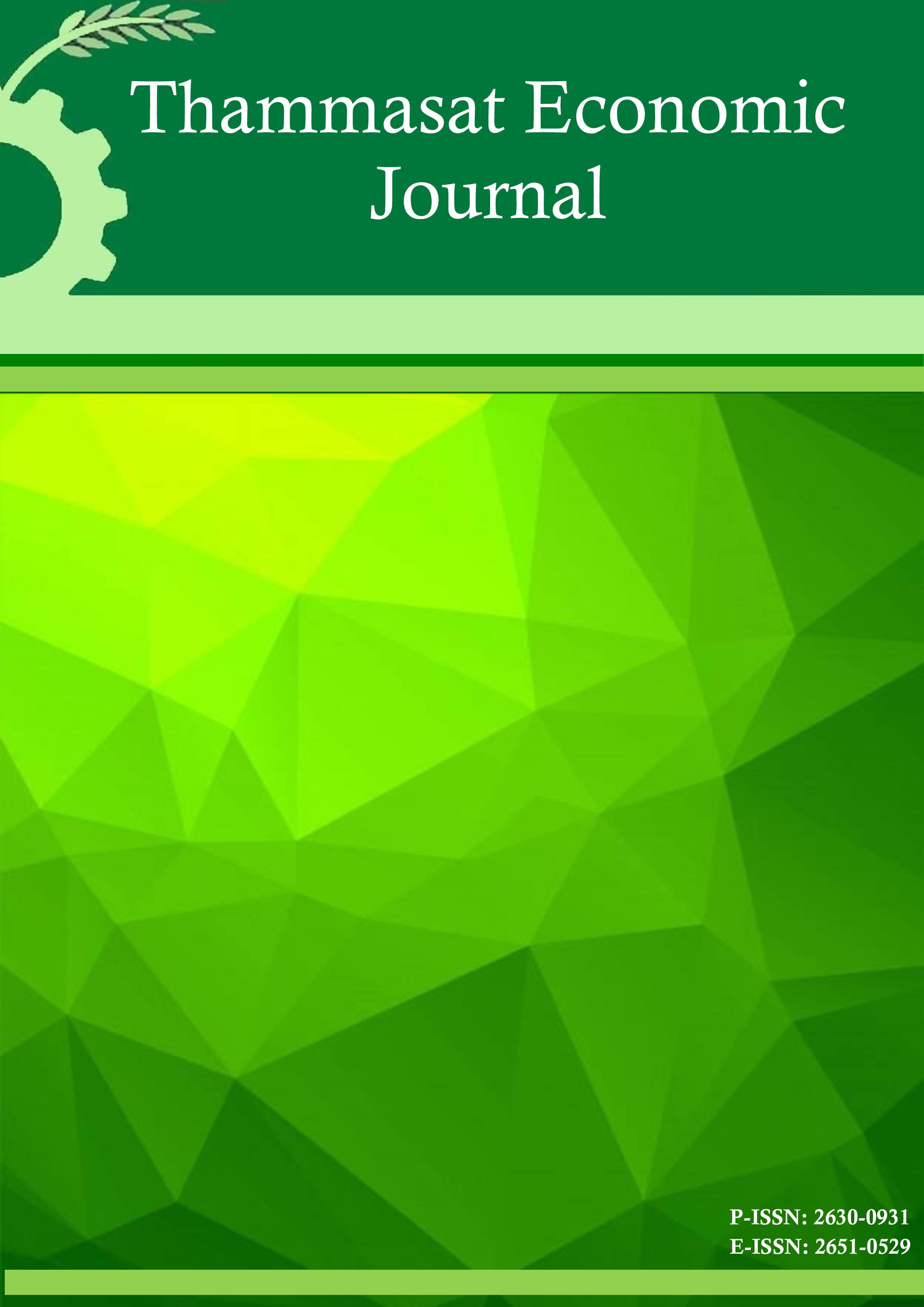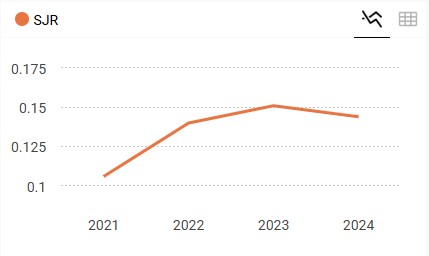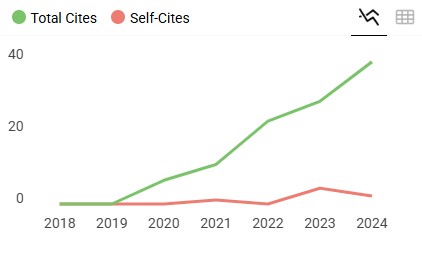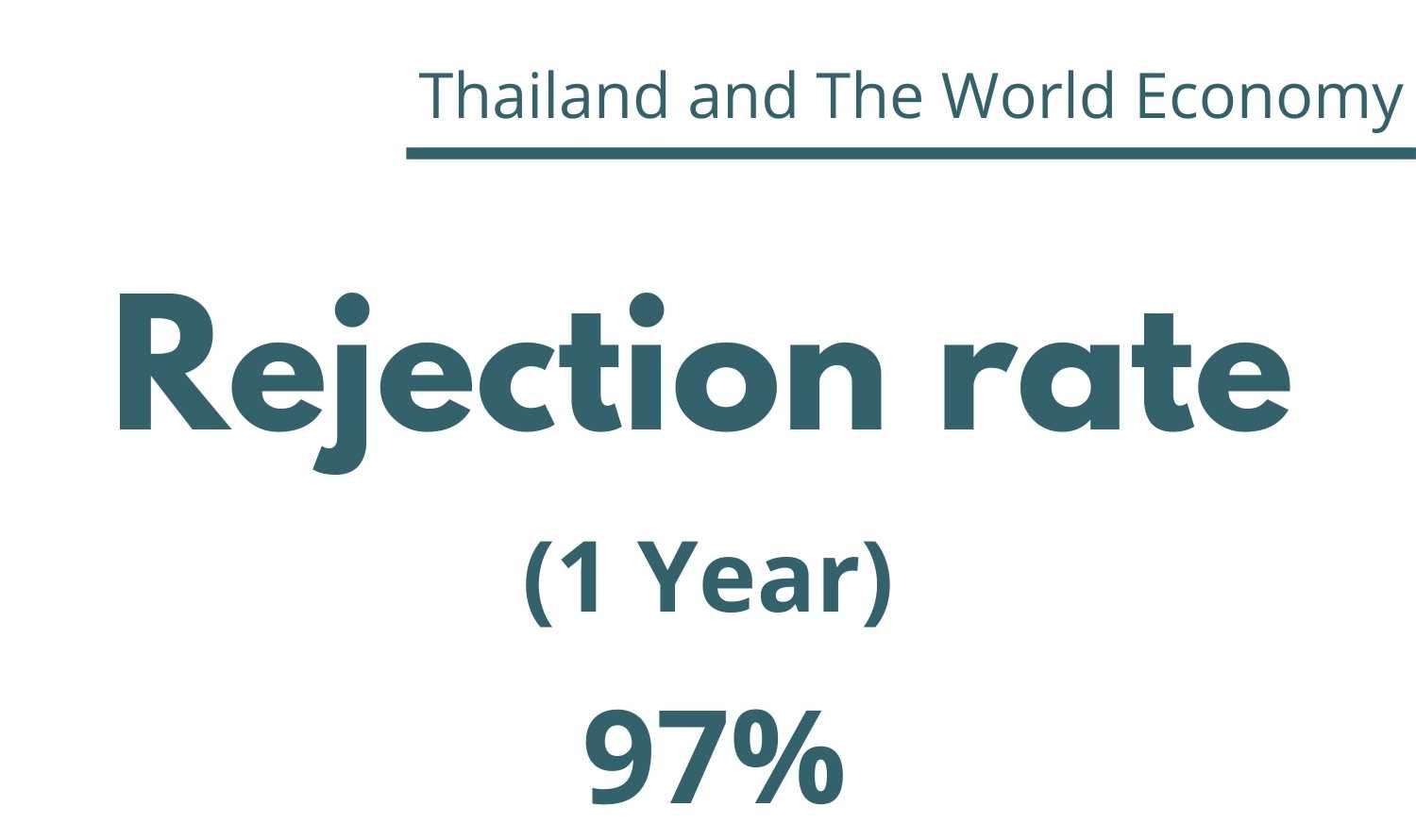Wellbeing, Development and Social Change in Thailand
Keywords:
modernisation, wellbeing, development, social change, povertyAbstract
Thailand has experienced economic and social transformation over a relatively short period of time and its experiences may offer salutary lessons for many other developing countries. However, the characteristics of Thailand’s transformation to modernity encourage us to onsider
new frameworks for analysing and understanding development and social change. This paper presents a distinctive concept of wellbeing that can provide valuable new insights into development and social change for the social sciences and for policy makers. A social definition of wellbeing argues against a focus on ‘the individual’ and requires us to comprehend the profound interdependence of the person and their society. The definition does not equate wellbeing with a narrow conception of happiness, nor can it be indicated simply by wealth. It is a practical definition in that it can be operationalised for empirical research and by focusing on wellbeing as resulting from the interplay of needs met; freedoms to act, and satisfactions in achieving goals, the approach yields new interpretations of development problems. The paper describes the research methodology that has been developed from this definition and summarises some of the results from two years of field-study in rural and urban communities in the Northeast and South of Thailand. In this paper we highlight the significance of a person’s primary location of residence not only for the wellbeing that the person is able to experience but also that they are able to conceive of. The paper concludes by recognising the clashes between different conceptions of and strategies for wellbeing that are often entailed in processes of development and social change and it highlights the policy and governance challenges that these represent for Thailand and other rapidly developing societies.
References
2. Akin Rabibhadana. (1993). Social Inequity: A Source of Conflict in the Future? Bangkok: Thailand Research Development Institute Foundation.
3. Alkire, S. (2002) Valuing Freedoms Oxford University Press, Oxford.
4. Appadurai, A. (2004). “The Capacity to Aspire” in Vijayendra Rao and Michael Walton (ed.s), Culture and Public Action, Stanford University Press, 2004.
5. Baker, C. 2003. Thinking About the Future of the Thai Countryside. Bangkok: Thailand Research Fund.
6. Barrientos, A., Bevan, P., Davis, P. and Room, G. Insecurity and Welfare Regimes in Asia, Africa and Latin America. Cambridge: Cambridge University Press, Ch. 3.
7. Camfield, L. (2007). Universal Coverage but Unequal Access? Experiences of Health Care in Northeast & South Thailand (ISQOLS 2006 conference volume; in press).
8. Camfield, L., McGregor, J. A. 2005. Resilience and Wellbeing in Developing Countries in Ungar, M. (ed) Handbook for Working with Children and Youth: Pathways to Resilience Across Cultures and Contexts. Sage Publications.
9. Camfield, L., McGregor, J. A., Woodcock, A. (2007). “Needs, Wants, and Wellbeing: Perceived Needs in Northeast and South Thailand.” WeD Conference paper.
10. Chambers, R. (2005) Ideas for Development. Earthscan, London.
11. Chattip Nartsupha, Pornpilai Lertwicha. (1998). Thai Village Culture. Bangkok, 2nd ed. Bangkok, Saangsun.
12. Clarke, R. (2006a). ‘Measuring Wealth Across Seven Thai Communities’. WeD Working Paper 17, University of Bath, April 2006.
13. Collard, D. (2003) ‘Research on Well-Being: Some Advice from Jeremy Bentham.’ WeD Working Paper No. 2, University of Bath.
14. Cummins, R. (2002). ‘Normative Life Satisfaction: Measurement Issues and a Homeostatic Model’. Social Indicators Research, 64, 225-256.
15. Cummins, R., & Nistico, H. (2002). ‘Maintaining Life Satisfaction: The Role of Positive Cognitive Bias’. Journal of Happiness Studies, 31, 37-69.
16. Dasgupta, P. 1993. An Inquiry into Well-Being and Destitution.: Clarendon Press Oxford.
17. Deneulin, S. and Townshend, N. (2007) ‘Public goods, global public goods and the common good’ International Journal of Social Economics 34, 1/2, 19-36.
18. Diener, E. (2000). ‘Subjective Well Being: The Science of Happiness and a Proposal for a National Index’. American Psychologist, 55, 34-43.
19. Dixon, C. (1996). ‘Thailand's Rapid Economic Growth: Causes, Sustainability and Lessons’. In: Parnwell, M. J., Arghiros, D.A. (1996). Uneven Development in Thailand, chapter two.
20. Doyal, L. and Gough, I. 1991. A Theory of Human Need. MacMillan London.
21. Dusadee Ayawut, Apisak Phitakham. (2005). ‘Quality of Life of People in Northeastern Thailand’, (unpublished WeD Thailand manuscript).
22. Esping-Andersen, G. (1990). The Three Worlds of Welfare Capitalism. Polity, Cambridge.
23. Frey, B.S. & Stutzer, A. (2000)‘Happiness, Economy and Institutions,’ Economic Journal, 110, 918-938.
24. Gasper, D. (2004) The Ethics of Development: From Economism to Human development. Edinburgh University Press. Edinburgh.
25. Gasper, D. (2007) ‘Conceptualising Human Needs and Wellbeing’ in: Gough, I. and McGregor,
26. J.A. (eds.) 2007. Wellbeing in Developing Countries: From Theory to Research, Cambridge University Press, Cambridge.
27. Gough I, Wood G. (2004). Insecurity and Welfare Regimes in Asia, Africa and Latin America.
28. Gough, I, McGregor, JA, &Camfield, L. (2007). ‘Introduction: Conceiving Wellbeing in Development Contexts’. in: Gough, I. and McGregor, J.A. (eds.) 2007. Wellbeing in Developing Countries: From Theory to Research, Cambridge University Press, Cambridge.
29. Gough, I., & McGregor, J.A. (eds.) 2007. Wellbeing in Developing Countries: From Theory to Research, Cambridge University Press, Cambridge.
30. Graham, C, & Pettinato, S (2001). ‘Frustrated achievers: Winners, losers, and subjective wellbeing in new market economies’. Center on Social and Economic Dynamics Working Paper Series No. 21.
31. Guillén Royo, M., & Velazco, J. (2006). ‘Exploring the relationship between Happiness, Objective and Subjective Well-being: Evidence from rural Thailand’. WeD Working Paper 16, University of Bath, March 2006.
32. Hewison, K. (2002). ‘Responding to Economic Crisis: Thailand's Localism’. In: McCargo, D, Reforming Thai Politics, NIAS, Nordic Institute of Asian Studies, Copenhagen.
33. Hewison.K. (1999). ‘Localism in Thailand: a study of globalisation and its discontents’. Working paper, p1-27, Centre for the Study of Globalisation and Regionalisation.
34. Hickey, S. & Bracking, S. (2005) ‘Exploring the Politics of Chronic Poverty: From Representation to the Politics of Justice.’ World Development 33 (6), 851-865.
35. Huppert, F, Baylis, N & Keverne, B, eds. (2005) The Science of Well-being Oxford University Press, Oxford.
36. Jongudomkarn, D, & Camfield, L. (2006). ‘Exploring the Quality of Life of People in North Eastern and Southern Thailand’. Social Indicators Research, 78, pp.489-530.
37. Kahneman, D., Diener, E. and Schwarz, N. (eds.) (1999) Well-Being: The Foundations of Hedonic Psychology. Russell Sage Foundation, New York.
38. Kamolwattananisa, Nittaya, 2002, “Wellbeing: The final goal of development”, Social and Economic Journal, January-February: pp. 8-16.
39. Keyes, C.F. (1989). Thailand: Buddhist Kingdom as Modern Nation-State. Westview Press,
Boulder, CO, USA.
40. Layard, R. (2005) Happiness: Lessons from a new science. Allen Lane, London.
41. Max-Neef, M. (1991) Human-scale Development: conception, application and further reflections. London: Apex Press, New York.
42. McGregor J.A., McKay A. and Velazco J. (2007) ‘Needs and Resources in the Investigation of Wellbeing in Developing Countries: Illustrative Evidence from Bangladesh and Peru’. Journal of Economic Methodology, 14,1, 107-132.
43. McGregor, J. A. (1998). ‘A Poverty of Agency: Resource Management Amongst Poor People in Bangladesh’. Paper presented at the Plenary Session of European Network of Bangladesh Studies Workshop, University of Bath, England. April 1998. Mimeo http://staff.bath.ac.uk/hssjam/povertyofagency.pdf.
44. McGregor, J.A. (2007). ‘Researching Wellbeing: From Concepts to Methodology’ in: Gough, I.& McGregor, J.A. (eds.) 2007. Wellbeing in Developing Countries: From Theory to Research, Cambridge University Press, Cambridge.
45. McVey, R. (ed.). (2000). Money and Power in Provincial Thailand. NIAS, Nordic Institute of Asian Studies, Copenhagen.
46. NESDB (1998). “The State of Rural Thailand.” National Economic and Social Development Board, Rural Development Coordination Division, Bangkok.
47. NESDB. (1982). The Fifth National Economic and Social Development Plan (1982-1986), National Economic and Social Development Board, Bangkok.
48. NESDB. (1997). Wellbeing Measurement and Policy Analysis, National Economic and Social Development Board, Bangkok.
49. Newton, J. 2007. Structures, Regimes, and Wellbeing. WeD Working Paper 30. University of Bath, April 2007.
50. Nittaya Kamolwattananisa. (2003). ‘Thailand’s Sustainable Development Context’. Journal of Economy and Society, 40:2, April-June 2003. Office of the National Economic and Social Development Board.
51. Nussbaum, M. (2000) Women and Human Development: The Capabilities Approach. Cambridge: Cambridge University Press
52. Offer, A. (2006) The Challenge of Affluence: Self-control and Wellbeing in the US and Britain since 1950. Oxford University Press, Oxford.
53. Oswald, A. (1997) ‘Happiness and Economic Performance’ Economic Journal, 107, 1815-1831.
54. Parnwell, M. J. & Arghiros, D.A. (1996). Uneven Development in Thailand. Avebury, Aldershot.
55. Phongpaichit P. & Baker C. (2000a). Thailand's Crisis. Silkworm Books, Chiangmai.
56. Phongpaichit, P. (2005). Developing Social Alternatives: Walking Backwards into a Klong. In:
57. Warr, P (ed.). Thailand Beyond the Crisis. Routledge, 2005, London.
58. Rao, V. and Walton, M. (eds.) (2004) Culture and Public Action: A Cross-Disciplinary Dialogue on Development Policy. Stanford University Press, Stanford.
59. Rigg, J & Nattapoolwat, S. (2001). ‘Embracing the Global in Thailand: Activism and pragmatism in an era of de-agrarianisation’. World Development, 29, pp.945-960.
60. Rigg, J. (1998). ‘Rural-urban interactions, agriculture, and wealth’. Progress in Human Geography, 22, 497-522.
61. Rigg, J. & Ritchie, M. (2002). ‘Production, consumption, and imagination in rural Thailand’. Journal of Rural Studies, 18, pp.359-71.
62. Ryan, R. Huta, V. & Deci, E. (2006) ‘Living Well: A Self Determination Theory Perspective on Eudiamonia’ Journal of Happiness Studies .
63. Schaaf, R. (2007) Individual and Collective Wellbeing: Exploring the role of community groups in the construction of wellbeing in Northeast Thailand, Ph.d. thesis, University of Bath.
64. Seligman, M. & Csikszentmihalyi, M. (2000) ‘Positive Psychology: An Introduction.’ American Psychologist. Jan Vol 55(1), pp. 5-14.
65. Sen, A. & Nussbaum, M. eds. (1993) The Quality of Life Clarendon Press, Oxford.
66. Sen, A. 1999. Development as Freedom. Knopf Press, New York.
67. UNDP (United Nations Development Programme Thailand). (1999). Thailand Human Development Report: Economic Crisis. UNDP Thailand, 1999.
68. UNDP (Thailand). (2003). Thailand Human Development Report: Community Empowerment and Human Development. UNDP Thailand, 2003.
69. UNDP (2007). Sufficiency Economy and Human Development. UNDP Thailand, 2007.
70. Veenhoven, R. (2002)’Why social policy needs subjective indicators’ Social Indicators Research, vol. 58, pp 33-45.
71. Warr, P. (2005) Thailand Beyond the Crisis. London, Routledge.
72. Warr, P. (1993) The Thai Economy in Transition, Cambridge University Press, Cambridge.
73. Wasi, Prawase, 1999, ‘A Story of Sustainable Development’, Bangkok Post, 31 December.
74. Wellbeing in Developing Countries ESRC Research Group. (2007). WeD Research Statement, http://www.welldev.org.uk/research/aims.htm (accessed July, 2007).
75. Woodcock, A, Camfield, L, McGregor, A, Martin, F. (2007) ‘Validation of the WeDQoL-Goals-Thailand Measure: Culture-Specific Individualised Quality of Life’ draft submitted to Applied QoL Research, 2007.










